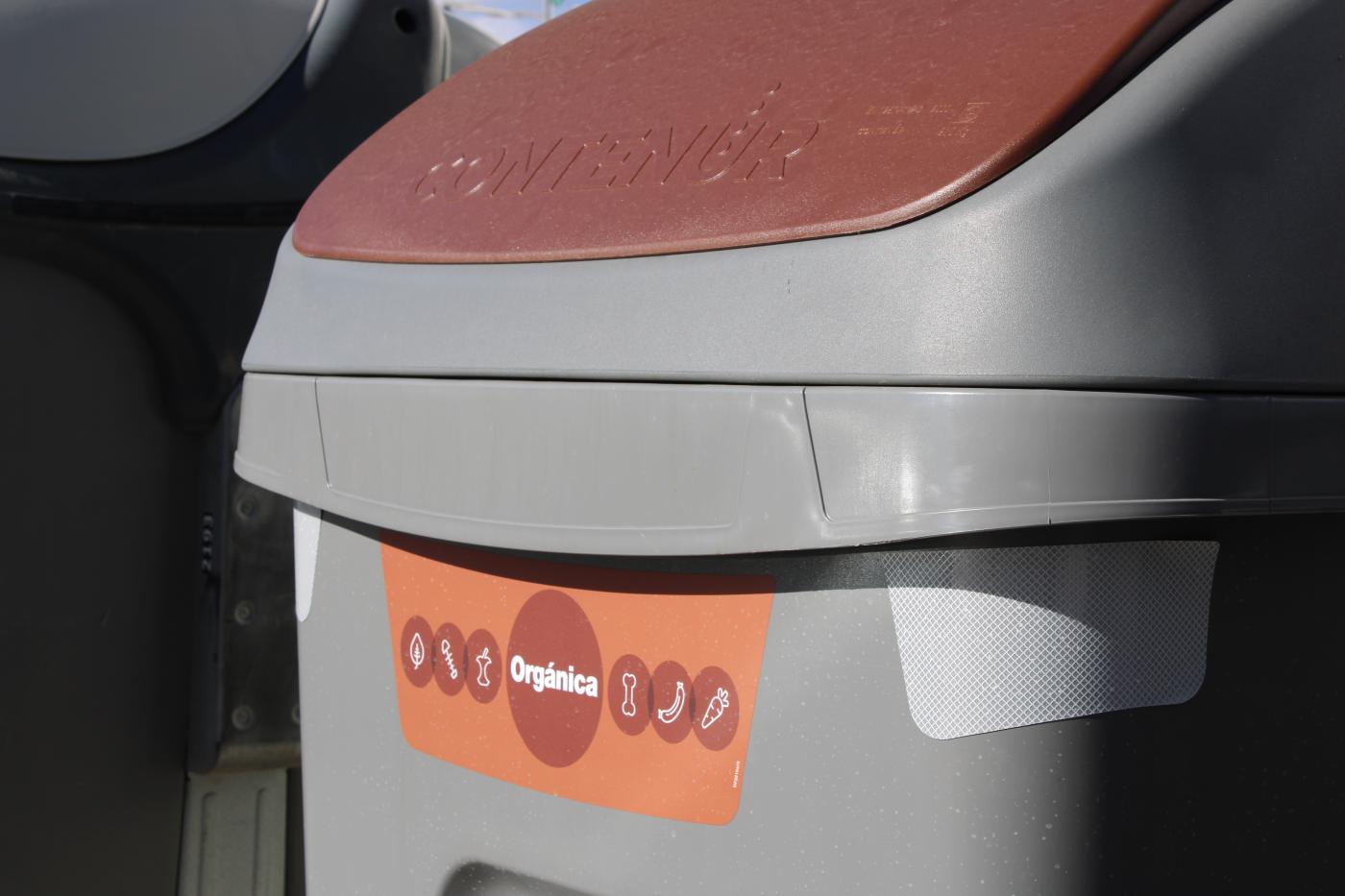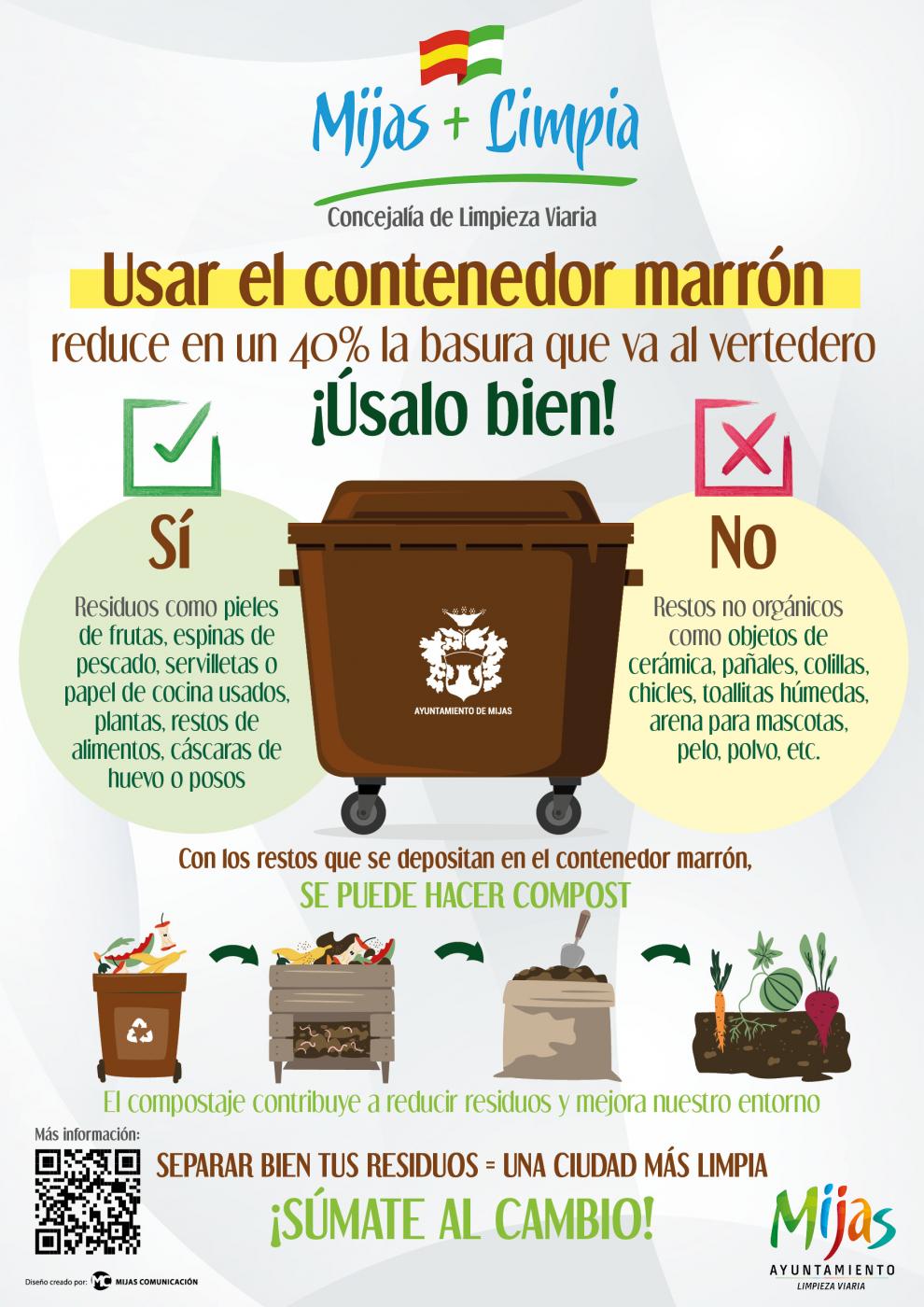The Mijas Town Hall, through the Cleanliness Department, has launched the first of a series of public awareness campaigns that will be developed throughout the year with the aim of involving citizens in the care of the municipality and promoting responsible habits. This first action focuses on the correct use of the brown bin, intended for organic waste.
The campaign presented on Friday 28th explains what to put and what not to put in the brown bin and the importance of its use, as its incorporation into the recycling chain allows "a 40% reduction in waste going to landfill". This was stated on Friday by the councillor responsible for the area, Eloy Belmonte (Vox), who called on the public to cooperate in the correct use of the brown bin, "which has now been installed almost everywhere in the municipality". "We have been reinforcing the cleaning services and improving the technical and human resources, but without the cooperation of the neighbours, this effort is not enough. That is why we wanted to launch clear and useful campaigns, so that every Mijeño knows what they can do in their immediate surroundings".
Food waste such as fruit skins, fish bones, plants, eggshells, coffee grounds, used napkins and paper towels can be dumped in this bin. But what should not be recycled in this bin? Non-organic waste such as ceramic objects, nappies, cigarette butts, chewing gum, wet wipes, pet litter, hair and dust. This waste goes in the grey bin.
The Department of Cleanliness stresses that its use only brings advantages, as the waste that is deposited in the brown bin can be used to make compost, which can be used as fertiliser and even as an energy generator. "It should be borne in mind that composting all this waste will allow us to recycle it, that is to say, it will be useful again", the councillor pointed out.

- En este contenedor, se pueden verter restos de alimentos como pieles de frutas, espinas de pescado, plantas o cáscaras de huevo.
- | ARCHIVO
Not only do we get compost, we also get cleaner streets, and also an economic saving "because if we recycle more, the rubbish tax will be lower with these new tax ordinances that are coming, with which we have to pay for everything we do not recycle, so the more we recycle all the packaging, all the paper and organic waste, the less tax we will pay".
Advantages of recycling
Its use, therefore, Belmonte stressed, means three improvements: taking care of the environment, a greater cleanliness of our streets and a relief for our economy. "We all want cleaner streets, we all want to pay less and we all want to contribute to the environment, so I believe that, together, we can have a cleaner and more ecological Mijas", concluded the councillor.
This information and awareness campaign is already being broadcast on all Mijas Communication media, on television, radio, newspaper, social networks and on this website. It can also be seen on posters around the municipality. In addition, the brown bins themselves indicate what can be thrown in them.
"This campaign goes beyond recycling: it is a commitment to respect, responsibility and coexistence. Because when Mijas is cleaner, it is not only seen: it is lived. And that is our common goal: to build a cleaner Mijas together", he concluded.

- Cartel informativo.
Share it with this link: https://mijasint.com/?a=33960






















